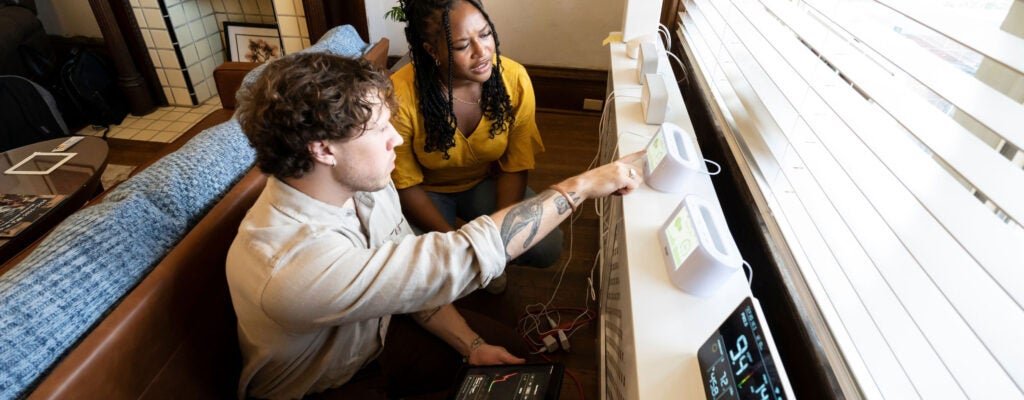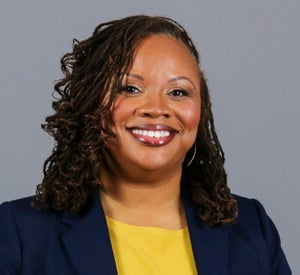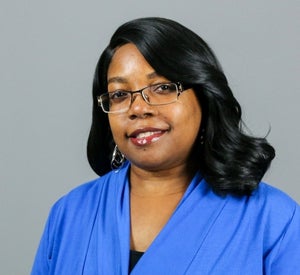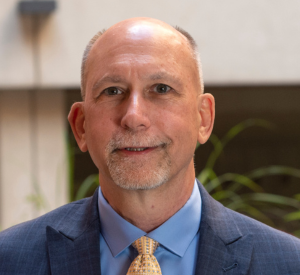Overview
The need for counselors has never been greater. Our award winning educational programs, research projects, and other learning opportunities prepare students to excel in the counseling profession. Pitt graduates are highly successful as they enter this rewarding profession. We take a holistic, hands-on approach to training that provides a strong foundation of knowledge while offering ample opportunity to practice your skills and options for personalizing your education. Our world class faculty include renowned scholars, highly skilled clinicians, and passionate educators. Join our efforts to create a future that is healthier, more compassionate and more inclusive.
Mission Statement
The Department of Counseling and Behavioral Health is home to programs that deliver personalized educational experiences for future professional counselors. We prepare our students to address the complex challenges faced by clients of diverse backgrounds, including individuals across cultures, across the lifespan, and living with disabilities and behavioral health challenges. We emphasize experiential training in evidence-based practices while advancing the field through clinical research. We are committed to community engagement, advocacy, and promoting diversity, inclusion, and cultural humility.
Programs
Scholarships
Nancy L. Oyler Student Award in Counseling
The Nancy L. Oyler Student Award was established in 2019 by a gift from the John Francis Oyler and Nancy Lee Victoria Fleck Oyler Foundation, the first permanently endowed private scholarship in the SHRS Clinical Rehabilitation and Mental Health Counseling Program. The award was established to honor the memory of Nancy L. Oyler.
More about the award:
- A maximum of three scholarships per year will be awarded.
- Students who compete successfully for this award will receive a maximum annual scholarship award of $10,000.
- All applicants to the Counseling Program are eligible and encouraged to apply for this award. Students may re-apply for the award for a second year of support.
- Awardees must be accepted into the Counseling Program and enrolled as a full-time student.
Awards by Year:
2025-2026
2024-2025
2023-2024
- Janaya Larae Carlisle
- Gerret E. George
- Kelisa Hysenbegasi
- Christina Marie Murzynski
2022-2023
- Janaya Larae Carlisle
- Jackilyn Garces
- MeLoni M. Griffin
- Christina Marie Murzynski
2021-2022
- Emily M. Kirschner
- Amy Lynn Adelman
Fall: Zihui Hua
Spring: MeLoni M. Griffin
About Nancy L. Oyler
Oyler was born in Grove City, PA. She earned an associate degree at Grove City College. She attended the University of Pittsburgh and was awarded a Master of Education Degree in Rehabilitation Counseling. While a student at Pitt, she began working for the Greater Pittsburgh Guild for the Blind. Following graduation, she continued to work for the Guild as a rehabilitation counselor and intake specialist until 1968. Following a leave from the rehabilitation counseling profession to raise her three children, Oyler returned to the Guild in 1986 (renamed as Blind and Vision Rehabilitation Services of Pittsburgh), where she worked for the next 19 years until her retirement in 2005.
Professionally, Oyler’s career as a rehabilitation counselor involved providing psychosocial adjustment services to persons with disabilities. She was remembered by those who knew and worked with her as having a passion for helping people and doing good things. She was described by co-workers as innovative and compassionate, instilling hope and confidence in persons going through difficult adjustments and assisting them in building independence.
Oyler was a regular contributor to more than 40 nonprofit organizations dedicated to the welfare of people, animals and the environment.
Community Engagement
Serving our community by using our knowledge, skills, and experience is among our most rewarding activities. We collaborate with a variety of community organizations and institutions in the Pittsburgh region and beyond. These collaborations help to advance the goals of these organizations through direct clinical service delivery, organizational consultation, advocacy, and community-engaged scholarship. Community-engaged scholarship is when community members serve as partners on the research team. These partners work hand-in-hand with our faculty to develop research questions and ensure that our scholarship is addressing the needs of the community members. Details regarding organizations with whom we partner and projects in which we are involved are provided below.
Awaken Pittsburgh
Awaken Pittsburgh is a non-profit organization that brings mindfulness and other wellness programming to the community, including local school districts and emergency responders, as well as conducting research on the benefits of mindfulness.
Commonwealth Technical Institute at the Hiram G. Andrews Center
In 2005, our Counseling program through Pitt’s Department of Rehabilitation Science and Technology entered into an Interagency Agreement (IAA) with the Pennsylvania Department of Labor and Industry, Office of Vocational Rehabilitation (OVR), and the CTI at HGAC. Through this collaboration, we develop and implement programs of cognitive rehabilitation, assistive technology, and rehabilitation psychology. Clinical services, consultation, technical assistance, and training are provided through the Center for Assistive and Rehabilitative Technology (CART), the Cognitive Skills Enhancement Program (CSEP), Pre-Employment Transition Service (Pre-ETS) programs, and rehabilitation psychology services.



Office of Community Health and Safety
The City of Pittsburgh’s Office of Community Health and Safety exists to address longstanding health, safety and justice issues.
Psychological Evaluation for UPMC Threat Assessment, Faculty Coordinator (January 2021-Present)
Associate Professor Laura Dietz conducts psychological evaluations for potential security and police candidates at UPMC hospital across the state. She has expanded this opportunity to provide an external clinical experience for counseling graduate students. Since January of 2021, this platform has provided training experiences for our CMHC students who are completing internship and require help to attain direct hours. To date, five (5) students have worked with Dietz and the UPMC Threat Assessment team to conduct clinical interviews for prospective security and police positions within UPMC hospitals. Dr. Dietz provides training and supervision to students at all levels of the evaluations, including supervising the administration of the Minnesota Multiphasic Personality Inventory (MMPI)-2-RF, interpreting testing data to make recommendations for employment and/or Act 235 approval, and reviewing and approving formal written reports. This contract provides paid employment for counseling graduate students who are enrolled in the program and typically supports 1-2 students in each academic year.
Pitt Center for Emergency Responder Wellness
The purpose of this research project is to provide counseling services to promote wellness at no cost to local emergency responders. We are providing evidence-based treatment delivered by providers who are trained in emergency response cultural awareness. Specifically, we are providing a type of talk therapy known as cognitive behavioral therapy. This treatment approach has extensive evidence supporting its effectiveness for the types of problems that emergency responders are most likely to experience. The treatment is provided by advanced graduate students in mental health or recent graduates working toward their licensure. These treatment providers are closely supervised by Department Chair and Professor Eric Meyer, the project director, a licensed psychologist and professor of counseling who has extensive experience working with emergency responders.
Training Religious Leaders in Bereavement to Upskill Treatment Experiences (TRIBUTE)
The Training Religious Leaders in Bereavement to Upskill Treatment Experiences (TRIBUTE) for Bereavement in Communities of Color research study is being conducted through a collaborative with the University of Pittsburgh and community leaders/stakeholders in Homewood and Wilkinsburg, as well as from Homewood Community Ministries and Primary Care Health Services (PCHS).
The team is seeking to learn about the benefits of providing Interpersonal Counseling (IPC-3) to individuals who have experienced the death of a loved one in the past 1-2 years. IPC-3 will be provided by non-licensed individuals from the community who have been trained and are being supervised by licensed mental health professionals within the TRIBUTE team.
Pitt PATH
Are you an older adult caring for a relative’s child? Help us develop a path to services for kinship caregivers in Cambria County!
Faculty and graduate students from the University of Pittsburgh Counseling and Occupational Therapy programs are interested in speaking to qualified individuals about the obstacles they face accessing health services for themselves and the children they care for.
The study involves a 15-minute phone interview, a 1-hour virtual focus group which individuals can participate from home by completing online questionnaires. Eligible caregivers will receive $100 for completing the study.
Contact:
Wellness Pavilion
The School of Health and Rehabilitation Science’s Wellness Pavilion is a student-driven center that seeks to make health and wellness services more accessible in Homewood and the surrounding communities through programming such as interactive educational sessions, special events, and services aimed at prevention, treatment, and rehabilitation. All services are student-led, faculty-supervised and offered free of charge.
Hiram G. Andrews Center
Collaboration with the Commonwealth Technical Institute at the Hiram G. Andrews Center
About
The mission of the Commonwealth Technical Institute at the Hiram G. Andrews Center is to offer quality individualized post-secondary education, pre-employment transition and support services to customers as they determine and pursue individualized goals of employment and independence. Learn more about HGAC here: www.dli.pa.gov/CTI-HGAC.
In 2005, our Counseling program through Pitt’s Department of Rehabilitation Science and Technology entered into an Interagency Agreement (IAA) with the Pennsylvania Department of Labor and Industry, Office of Vocational Rehabilitation (OVR), and the CTI at HGAC. Through this collaboration, we develop and implement programs of cognitive rehabilitation, assistive technology, and rehabilitation psychology. Clinical services, consultation, technical assistance, and training are provided through the Center for Assistive and Rehabilitative Technology (CART), the Cognitive Skills Enhancement Program (CSEP), Pre-Employment Transition Service (Pre-ETS) programs, and rehabilitation psychology services.
Cognitive Skills Enhancement Program (CSEP)

The overarching goal of the Cognitive Skills Enhancement Program (CSEP) is to improve employment outcomes for transition-aged individuals with cognitive disabilities by increasing awareness of strengths, limitations, and impact of disability and through development of social-emotional and executive functioning skills. CSEP serves the state’s Office of Vocational Rehabilitation (OVR) customers with autism spectrum disorder, attention-deficit hyperactivity disorder, learning disorders, and other cognitive disabilities from across the Commonwealth across three tiers of service:
- Tier I provides intensive individual and group interventions (8 hours per day) over a 15-week period.
- Tier II services provide intensive follow-up services to former Tier I participants who are in training programs at HGAC.
- Tier III services include individual assessment and intervention, supports, and advocacy regarding accommodations and program modifications, and are provided to the HGAC population.
Resources
- Click here for more information about CSEP.
- Click here for the slides from the 2022 Pennsylvania Transition Conference CSEP presentation.
- Click here for the 2023 publication in the Journal of Vocational Rehabilitation: A vocational rehabilitation partnership to provide transition services to young adults with neurodevelopmental disabilities: The Cognitive Skills Enhancement Program.
CSEP is affiliated with the Regulation of Emotion in Autistic Adults, Children, and Teens (REAACT) program. The REAACT program aims to conduct research that will ultimately improve mental health and wellbeing for autistic people across the lifespan. Click here to learn more.
Center for Assistive and Rehabilitative Technology (CART)

The Center for Assistive and Rehabilitative Technology (CART) supports the assistive technology needs of both HGAC and more largely, Pennsylvania’s Office of Vocational Rehabilitation (OVR) customers across the state. Click here for more information about CART.
Pre-Employment Transition Services (Pre-ETS)

The Pre-ETS programs are designed to provide pre-employment transition services to younger individuals (14-21 years) with disabilities. Pre-ETS programs include the Career Readiness, Employment, and Transitional Evaluation (CREATE) program and summer academies. The Career Readiness, Employment, and Transitional Evaluation (CREATE) program is a monthly session designed to provide basic career exploration activities to youths in transition. The summer academies include:
- Access Planning and Strategies (APS) Academy: Provides students with a foundation of knowledge and experience related to the crucial skills and strategies needed as they transition from high school to post-secondary education or work through hands-on learning of technologies to assist with post-graduation life.
- Working on Readiness and Careers (WORC) Academy: Designed to provide students with opportunities to grow in the domains of leadership and work readiness through individual and vocational exploration.
People

Alaina Campbell
Clinical Therapist

Melanie Cherry
Senior Program Administrator, Administrator for the HGAC Collaboration

Michael Kiel
Clinical Therapist, Cognitive Rehabilitation Specialist for the HGAC Collaboration

Jamie Kulzer
Associate Professor, IAA Program Director for the HGAC Collaboration

Michael McCue
Emeritus Faculty, Consultant for the HGAC Collaboration

Eric Meyer
Chair for the Department and Professor

Tamra Pelleschi
Instructor, CART Program Manager for the HGAC Collaboration

Michael Pramuka
Associate Professor

Chad Schaffranek
Assistive Technology Specialist for the HGAC Collaboration

Michelle Schein
Vice Chair for Education, Director of the Clinical Mental Health Counseling Program and Associate Professor

Amy Adelman
Clinical Therapist, Cognitive Rehabilitation Specialist for the HGAC Collaboration
Research
Our faculty are engaged in research ranging from community-engaged scholarship and investigating multicultural issues in counseling to laboratory studies aimed at uncovering insights about the development and maintenance of mental health challenges. We focus on prevention interventions and improving treatments for those exposed to psychological trauma, particularly those in high-risk occupations such as military personnel and emergency responders. We seek to identify ways to support student wellness more effectively and to understand the experiences of caregivers. Outcomes in our research projects go beyond symptom reduction to include social and occupational functioning, quality of life, community participation, and other indicators of our participants living lives of meaning and purpose.
Our research populations range across the lifespan and include those living with posttraumatic stress, depression, anxiety, suicidality, autism spectrum disorder, alcohol use disorder, grief, chronic pain, and neurological challenges including traumatic brain injury and stroke. Projects include adapting and testing intervention approaches such as Acceptance and Commitment Therapy, Interpersonal Therapy, and the Unified Protocol for Transdiagnostic Treatment of Emotional Disorders, as well as educating peers and paraprofessionals in evidence-based interventions.
Research Areas
- Resilience interventions for people exposed to psychological trauma
- Innovative methods of supporting caregivers
- Training community members, peers, and paraprofessionals in psychosocial intervention approaches for trauma and grief
- Increasing mental health literacy and access in under-resourced populations
- Self-delivered and AI-based tools to increase access and fill gaps in mental health care
- Adapting and testing mindfulness-based behavior therapies for people exposed to trauma and those with acquired brain injuries
- Improving functioning and reducing suicide risk in people with autism
Active Research Labs and Projects
People

Amy Adelman
Clinical Therapist, Cognitive Rehabilitation Specialist for the HGAC Collaboration
ala465@pitt.edu
Melanie Cherry
Senior Program Administrator, Administrator for the HGAC Collaboration
melanie.cherry@pitt.edu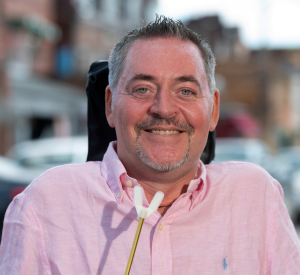
Michael Kiel
Clinical Therapist, Cognitive Rehabilitation Specialist for the HGAC Collaboration
michael.kiel@pitt.eduResources
Current Student Resource Hub
Students can find access to program materials in the Current Student Resource Hub. Pitt Passport is required.
Current Students can also find answers to commonly asked questions and connect with valuable resources and contacts. This resource helps students locate academic guidance, professional development, or support for each individual’s wellbeing including things like counseling or study resources.
Counseling Resources
- Counseling Center for Graduate Students
- Finding an Off-Campus Provider
- Thriving Campus Help Guide
- Graduate and Professional Student Health Plans
Related Links
- American Counseling Association (ACA)
- American Rehabilitation Counseling Association (ARCA)
- Council for Accreditation of Counseling & Related Educational Programs (CACREP)
- Commission on Rehabilitation Counselor Certification (CRCC)
- National Board for Certified Counselors (NBCC)
- PA Licensing Board for Professional Counselors
- Pennsylvania Rehabilitation Association
- National Rehabilitation Association
Information for Students Seeking LPC
If you need original course descriptions, please contact transcert@registrar.pitt.edu and provide your name, the courses you need descriptions for, and your student ID number or last 4 of your Social Security Number.
If you need course syllabi, please contact the Counseling program at PittCounselingProgram@pitt.edu

